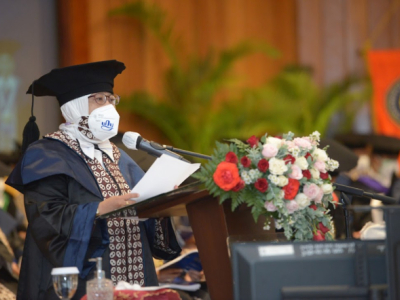Reflections and Implications of Multilingualism for Education

Multilingualism is the ability or action of individuals and communities to use more than two languages. Multilingualism arises because of the need to communicate between individuals, communities, ethnic groups, nations, and even across countries. In Indonesia, the multilingual context is characterized by the diversity of regional languages spread throughout the archipelago. Indonesian as the national language successfully unified the nation, and several foreign languages - especially those taught in education - with English as the primary language for its position as a global language, and Arabic, which is often associated with the majority of Muslims in Indonesia. According to the Professor of Sociolinguistics, Faculty of Language and Arts, Universitas Negeri Yogyakarta, Prof. Erna Andriyanti, these three languages are important because the regional language is a shaper of cultural identity and a tool to preserve local wisdom.
In contrast, Indonesian as a national language is a formal communication tool, fostering a sense of nationalism and a cross-ethnic communication tool. English plays a role in communication between nations and countries, facilitates international interaction, and confirms the existence of its speakers as global citizens. “Arabic is a language used in the context of worship and as a means of communication in limited settings. Our collective understanding of the functions and roles of these various languages should be a solid foundation in developing multilingualism in Indonesia,” she said Friday (5/8) at UNY.
"Indonesia, which has ethnicities and languages, is united with Indonesian, which is also a central and prominent identity and national cultural character," said Erna. On the other hand, foreign language education policies in Indonesia require that English be taught in schools and universities. This policy opens up great opportunities for learners to be proficient in using it. Moreover, competence in English allows speakers to establish and strengthen ties of cooperation, negotiation, and diplomacy, along with the attempt to build understanding with other nations to achieve goals and gain mutual benefits. However, according to her, there are four challenges of multilingualism. The first challenge is the threat of extinction of regional languages in the archipelago. The second is related to the position and development of Indonesia in the era of globalization. The third relates to the lack of English language skills of the Indonesian people in general, even though this international language is considered to have an essential meaning in the era of globalization and internationalization in various fields. The fourth is the role of multilingualism in supporting the nation's competitiveness. "I believe that to become a great nation, we must have strong roots in local traditions and wisdom, great nationalism, and at the same time strong global competitiveness," she said.
Education in Indonesia must balance the position of local, national, and international languages. Indonesia needs a multilingual education model that can cover the life of regional languages and develop English and other foreign languages relevant to the needs of the people and nation. "A multilingual country should implement language policies in education that focus on regional and national languages in elementary schools, and English in secondary schools needs to be considered for their application in Indonesia," said Erna. (Dedy, Tj.Lak)

